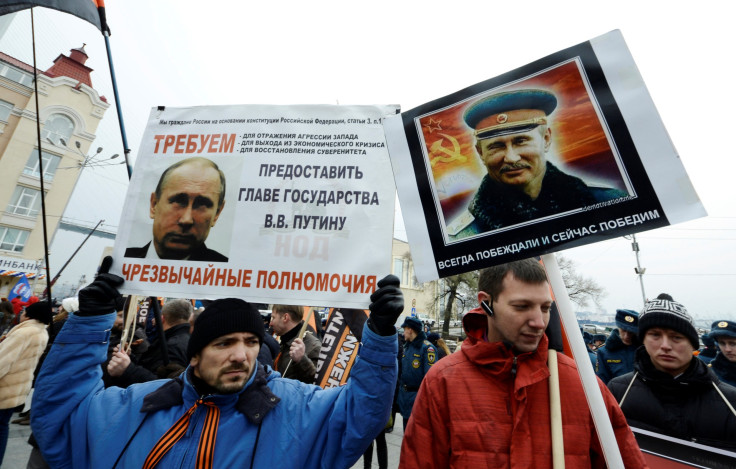Is Russia More Powerful Than The US? Pro-Moscow Presidents Win In United States, Bulgaria And Moldova Elections

Candidates who have shown support for Russia have won elections in the U.S., Bulgaria and Moldova in recent days as Moscow continues to expand its international sphere of influence.
Two socialist-backed, pro-Russian candidates, Rumen Radev of Bulgaria and Igor Dodon of Moldova, declared victory Sunday in their countries' respective presidential elections. Their victories followed an Election Day upset in which Donald Trump, who has expressed support for Russia's policies and praised Russian President Vladimir Putin, succeeded in securing the Electoral College vote Wednesday.
The trio of president-elects share more in common. All three campaigned on a platform accusing their pro-Western political elite of sabotaging the well-being of their respective nations. Radev, a former air force chief, vowed not to participate in the ruling party's "schemes" on the campaign trail. Dodon, who formerly served as deputy prime minister during the country's communist period, was propelled by the former government's mishandling and subsequent loss of $1 billion, about one-eighth of the country's GDP, in 2014 that plunged the nation into political turmoil. Trump often criticized former Secretary of State Hillary Clinton's longtime political relationship with Washington.
Radev and Trump also portrayed themselves as hard on immigration and specifically against allowing entry to refugees. Radev claimed he would prevent Bulgaria from becoming a "migrant ghetto." Trump repeatedly raised security concerns about a "Trojan horse" of terrorists posing as migrants entering the U.S. and has said the presence of refugees could affect the country's "quality of life." Flyers warning of a potential "invasion of refugees" if Dodon's opponent Maia Sandu was elected surfaced in Moldova during the first round of its elections last month.
These recent victories could represent a significant gain in Russia's political capital. The year has been a particularly tense one for relations between Russia and the West. Since Russia's 2014 annexation of the former Ukrainian territory of Crimea and continued support for rebels in Eastern Ukraine, a number of European nations have become increasingly concerned about Russia's military expansion in the region. In recent months, NATO and Russia have experienced their largest military buildup since the Cold War.
Trump, who has called NATO "obsolete" will take the reigns in January of the U.S., by far the international alliance's largest supporter. Radev said he would not pull out of either NATO or the E.U., but has consistently called for closer ties with Moscow. Moldova, not a part of NATO, may seek to join the Russian-sponsored Eurasian Customs Union in spite of the E.U. under Dodon.
Following each presidential victory, Putin offered his congratulations. The Russian president hoped for increased "bilateral political dialogue and expand constructive cooperation" in Bulgaria and, upon Dodon's victory, praised the new leader's "policy to achieve social and economic stability in the country and build balanced foreign policy priorities." Putin expressed the need to restore Russian-U.S. relations following Trump's election Wednesday.
"The president said he is confident that Moscow and Washington can establish a constructive dialogue based on the principles of equality, mutual respect, and genuine consideration for each other’s positions. This would be in the interests of both peoples and of the entire international community," according to a Kremlin press statement.
The final months of President Barack Obama's administration have seen a low point in the relationship between Russia and the U.S. Clinton, like Obama, took a hard line against Russia in her political speech, criticizing Moscow's involvement in conflicts in Ukraine and Syria. She also backed NATO's efforts to deter what she perceived as Russian aggression in Europe.
© Copyright IBTimes 2024. All rights reserved.






















